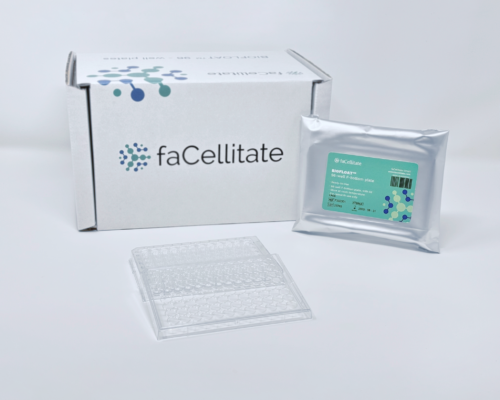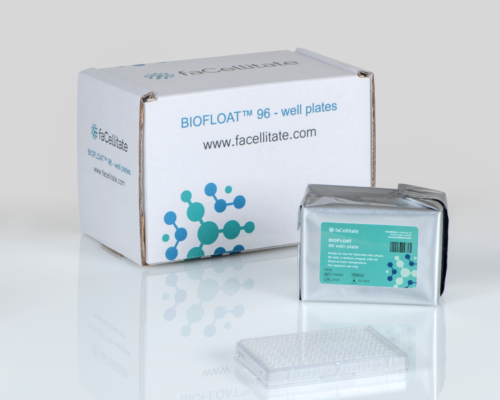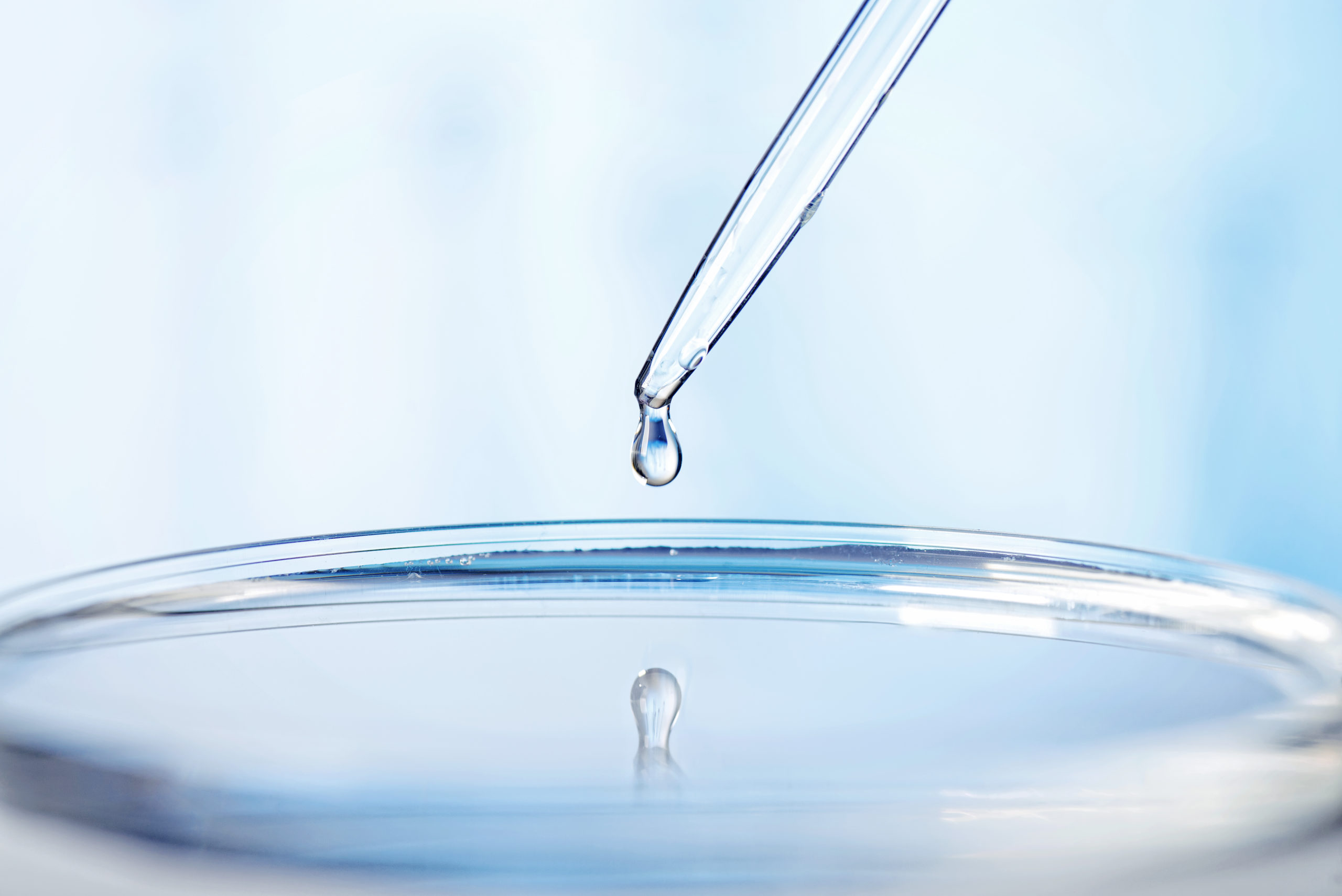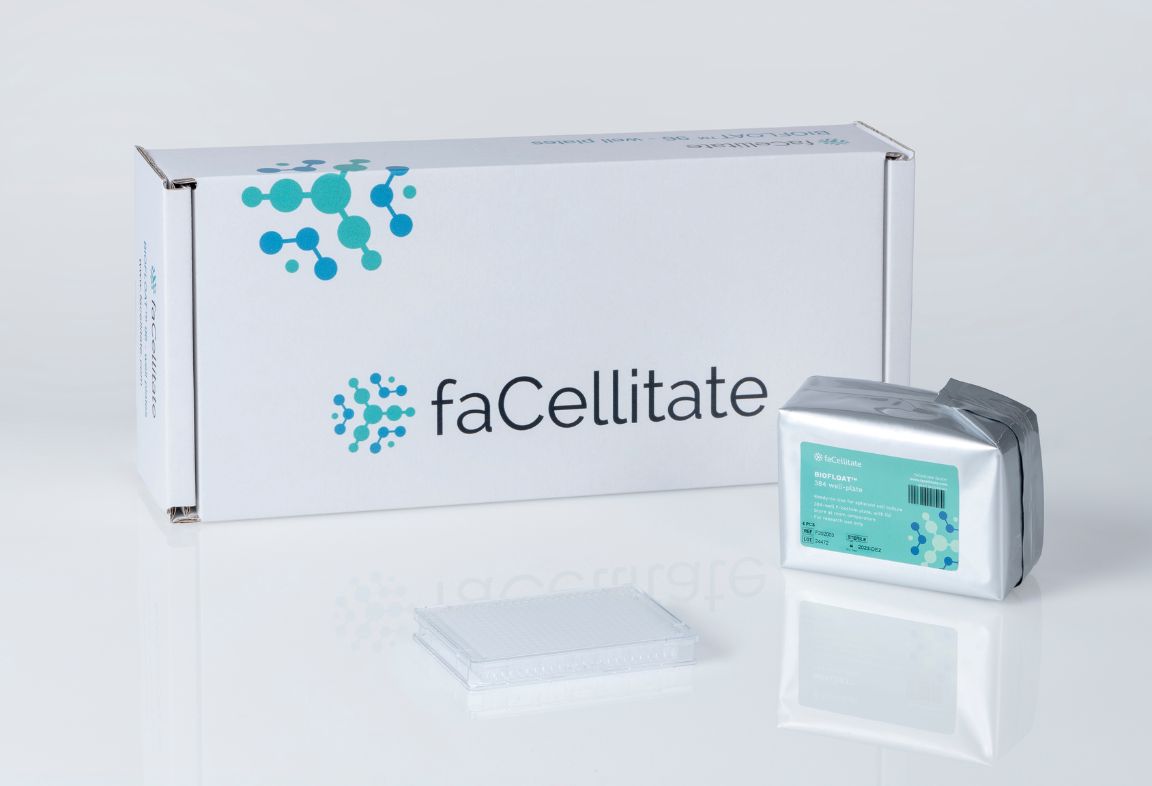The BIOFLOAT™ 96-well plate outperforms existing products by its anti-adhesive properties
- Stability in long term cultivation of 3D cell models
- Scratch resistant
- Repellent to protein and hydrophobic compounds
- Cell repellent
- Optimized for organoids
Ready-to-use for Suspension & 3D cell culture
The BIOFLOAT™ 96-well F bottom plate provides a highly defined, fully inert, and cell-repelling surface.
Product Characteristcs
Plate color: clear
Well bottom: Flat
Well volume: 390 μl
Dimensions: 85.20 mm (width) x 16.55 mm (height) x 127.80 mm (length)
Material: Polystyrene (PS)
Sterile: yes
Made in Germany
Quantity: 1 Plate per pack
Ready-to-use for spheroid cell culture
The BIOFLOAT™ 96-well plate provides a highly defined, fully inert, and cell-repelling surface.
Product Characteristcs
Plate color: clear
Well bottom: round (U – bottom)
Well volume: 310 µl
Dimensions: 85.20 mm (width) x 16.55 mm (height) x 127.80 mm (length)
Material: Polystyrene (PS)
Temperature range: – 20 °C to + 50 °C
Sterile: yes
Made in Germany
Quantity: bag of 4 plates with resealable snap lock
Want to make sure BIOFLOAT™ 96-well F bottom is suitable for your cell culture?
We are confident in the quality of our products and you can also be convinced of this.
We invite you to try our 96-well F bottomplates for Suspension & 3D cell culture.
![]() Cardiac myocytes
Cardiac myocytes
![]() Endothelial cells
Endothelial cells
![]() Primary hepatocytes
Primary hepatocytes
![]() Alveolar epithelial cells
Alveolar epithelial cells
![]() Neuronal stem cells
Neuronal stem cells
The reliable quality of the BIOFLOAT™ cell culture surface enables the formation of perfect spheroids and organoids even for challenging cells.

Cardiac myocytes

Endothelial cells

Primary hepatocytes

Alveolar epithelial cells

Neuronal stem cells
| Fibroblasts (M. musculus) Squamous cell cancer cell line (H. sapiens) Melanoma cell line (M. musculus) Colon carcinoma cell line (H. sapiens, Caucasian) Pancreatic adenoma cancer cell line (H. sapiens) Ovarian cell line (C. griseus) Epithelial breast cancer cell line (stem cell-like) (H. sapiens) Tumourigenic breast epithelial stem cell line from D492 cells (H. sapiens) Pancreatic cancer cell line (H. sapiens) Embryonic stem cells (S. scrofa domesticus) Pancreatic adenoma cancer cell line (H. sapiens) Lung adenocarcinoma cell line (H. sapiens) Breast cancer cell line (H. sapiens) Colon cancer cell line (H. sapiens) Primary dental pulp stem cells (H. sapiens) Pancreatic cancer cell line (H. sapiens) |
Immortalised osteoblasts (H. sapiens) Venous endothelial cells (H. sapiens) iPSC-derived hepatocytes Breast cancer cell line (H. sapiens) Pancreatic cell line (H. sapiens) Hepatic stellate cells/Ito cells (F norwegicus) Hepatic stellate cells/to calls (r. Sapiens) B-lymphocyte cell line from myeloma patients Immortalised astrocytes (H. sapiens) Differentiated fatty cell organoids from pluripotent stem cells Endometrial organoids from detached primary cells (non-human primates) Fibroblast progenitor cells (M. cerebralis) IPSC-derived cardiomyocytes (H. sapiens) Liver organoids (differentiated) (M. musculus) Neuronal stem cells (HN9 differentiated) Primary hepatocytes (H. sapiens, M. musculus, M. fascicularis, C. lupus famillaris) |
Ready-to-use for Suspension & 3D cell culture
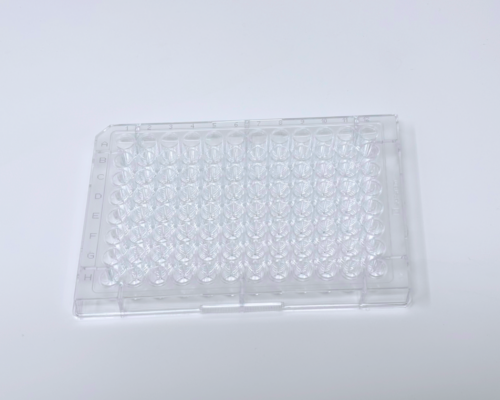
Stability in long term cultivation of 3D cell models
Highly viable and functional 3D cell models can be cultivated for several months in BIOFLOAT™ plates.
Scratch resistant
BIOFLOAT surfaces are highly resistant to physical and chemical stress. No risk of damaging the coating if scratching the surface with a pipette tip.
Repellent to protein and hydrophobic compounds
Proteins and sticky compounds are not interacting with BIOFLOAT surfaces, allowing a better control of the concentration of these molecules in your assay.
Cell repellent
Even the stickiest cells, like macrophages, cannot adhere to BIOFLOAT surfaces enabling their cultivation in suspension.
Raw Material Processing
The product does not use any rawmaterials of animal
or biological origin and therefore does not have TSE/BSE.
The polymer raw materials used for coating plates were positively evaluated
for quality consistency using GPC, GC-MS and NMR spectroscopy.
The sterile, non-pyrogenic/endotoxin-free, non-cytotoxic, DNase-/RNase-/DNA-free multi-well plates were coated using pipetting robots.
Coated plates were sterilized by electron beam irradiation
Request Your Free Sample Now
Why use BIOFLOAT™ coating technology for your research?
BIOFLOAT™ coating technology provides a highly defined, fully inert cell- and protein-repellent surface for cell culture labware and devices. Compact and reproducible spheroids are rapidly generated on BIOFLOAT™ coated surfaces, even with challenging cell types. Sticky proteins are inhibited to adsorb to your cell culture labware.
Which cells are compatible with the BIOFLOAT™ coating technology?
BIOFLOAT™ coating technology is compatible with broad range of human and animal derived cell lines or primary cells. This new technology is developed to generate cell spheroids; therefore, any cell line can be used which are known to form such spheroids or you can develop new organoid models containing spheroids with cell lines of your choice.. In Tab. 1 you can find a selected number of cell lines cultured with BIOFLOAT™ coating technology.
Tab. 1 List of cell lines
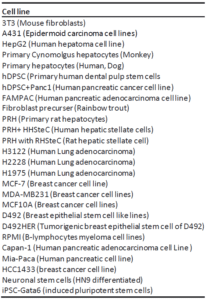
Which products are available with the BIOFLOAT™ coating technology?
Choose between the ready-to-use 6-, 24- 96- and 384- well plates or DIY BIOFLOAT™ FLEX coating solution to modify a broad range of plastic and glass surfaces.
Does the coating react with chemicals?
All BIOFLOAT™ products do not contain any reactive groups, which can react with other chemicals.
Check out our products
Are you facing any problem ordering our product or have any questions?
Feel free to schedule a call with us and let us solve your problem.
Downloads & Links
Product Sheet
White paper
Trusted by and published in Prominent journals






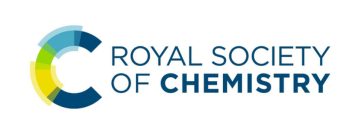



Our Partners












